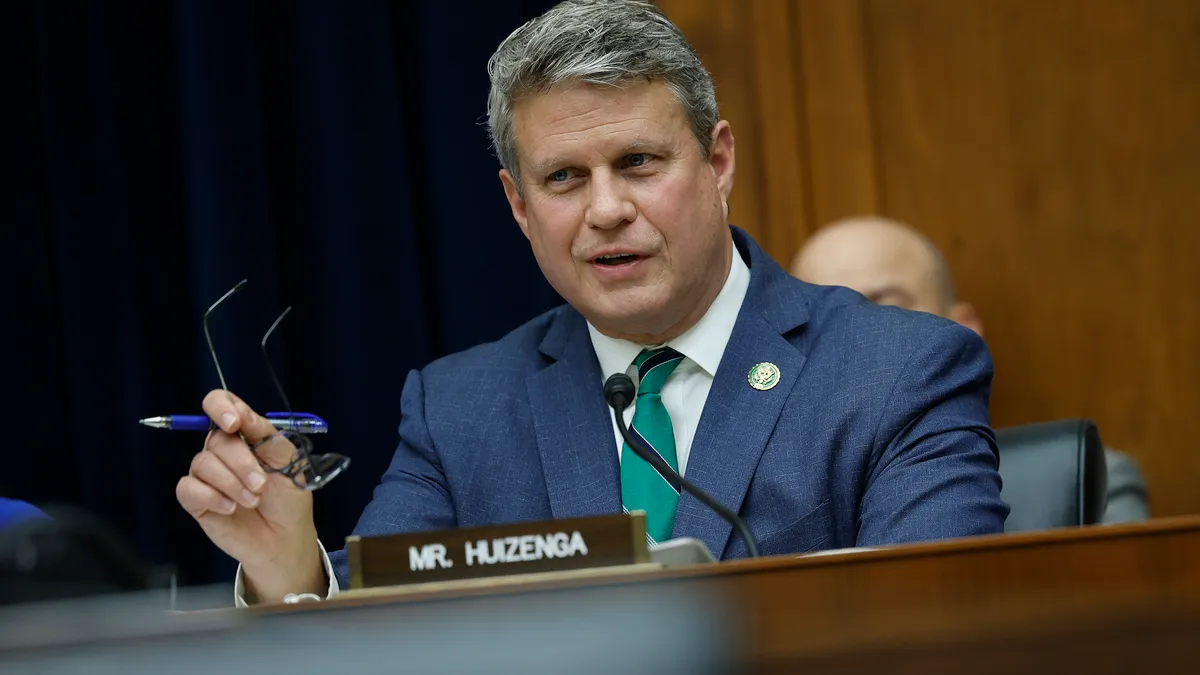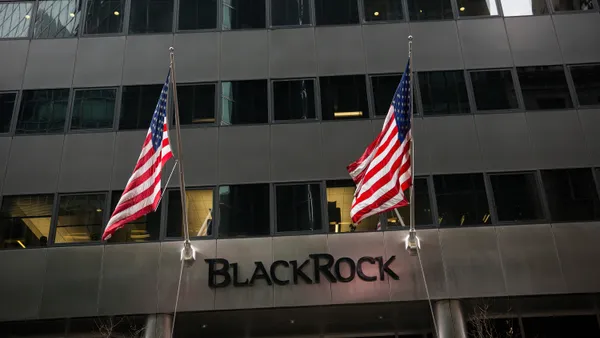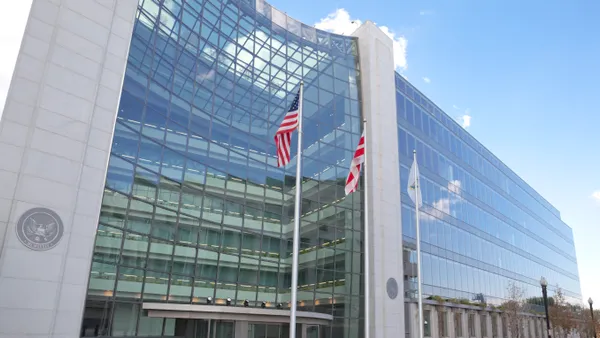Dive Brief:
- The House Financial Services Committee’s Republican ESG Working Group issued its final staff report Wednesday, outlining reforms Congress could make to the proxy process and its management to curtail what it sees as a “troubling increase in efforts to force progressive policies on the private sector.”
- The group recommends that Congress raise the approval thresholds necessary for shareholder proposals to be resubmitted, require proxy advisory firms to register with the Securities and Exchange Commission and unwind some of the SEC’s policy guidance, among other conclusions.
- The final report is expected to conclude the work of a working group created by the committee shortly after the beginning of the 118th Congress and aims to provide “recommendations to address the failures of progressive environmental and social policy goals.” Another ESG probe by the House Judiciary Committee is still ongoing.
Dive Insight:
The ESG working group — spearheaded by Committee Chair Patrick McHenry, R-N.C., and chaired by Oversight and Investigations Subcommittee Chair Bill Huizenga, R-Mich. — said the proxy voting system and the SEC have become politicized. The final report alleged “the [Biden] administration and other activists have weaponized the securities regulatory and disclosure frameworks to impose their radical agenda on the private sector.” The report argues that the proxy system, as it stands today, is “an environment ripe for abuse.”
In addition to what it has seen as the politicization of the SEC and the proxy process, the working group’s report also focuses on the roles that proxy advisors, institutional investors, ESG ratings companies and large asset managers play in the process. The working group also pointed to ESG-related regulations and disclosures being promulgated at both the state-level and internationally that will increase climate disclosure requirements for U.S. companies.
“Politically motivated ESG mandates put Americans’ financial security at risk and have no place in corporate boardrooms,” McHenry said in the press release. “Our committee will continue to work to ensure that progressive priorities are not placed above the interests of shareholders, sound corporate governance, or the strength of U.S. capital markets.”
The report points to a 2021 SEC staff bulletin that rescinded guidance allowing shareholder proposals that raised social issues to be excluded through the agency’s no-action process if it could not be shown to have significance to the company seeking to exclude it. The 2021 guidance reverted to the agency’s 1976 guidance — which was reaffirmed in 1998 — allowing for shareholder proposals that raise “issues with a broad societal impact, that they transcend the ordinary business of the company.”
The report warns that companies may be less likely to seek no-action relief as it becomes harder to exclude ESG proposals through the SEC’s process. The SEC received a total of 259 no-action requests through May 1 — up from 167 at the same point in 2023 — and excluded 68.4% while labeling a larger percentage of excluded proposals as micromanagement, according to a report from the Shareholder Rights Group.
While the number of ESG shareholder proposals — and particularly those related to environmental and social issues — continue to rise, multiple reports have come out this year finding the approval rates for such proposals continue to fall from a high in 2021. The report said increasing the barrier to resubmit shareholder proposals — which come with their own economic and time costs — above the current 5% threshold required for resubmittal is “necessary to ensure effective shareholder engagement can be maintained, and the rights and interests of all shareholders can be protected.”
Huizenga said in the release that the working group’s report can deliver “tangible solutions to increase transparency and accountability surrounding the shareholder and proxy process.”
“Investors from all walks of life deserve to know that those managing their hard-earned money are working to maximize returns, making it easier, not harder for more Americans to retire with financial security,” Huizenga said.
The final report comes as the House Judiciary Committee continues to probe whether current antitrust laws are enough “to deter anticompetitive collusion to promote ESG-related goals.” The Jim Jordan-chaired committee sent letters to more than 130 U.S.-based members of the Climate Action 100+ coalition last week, questioning their involvement in the group.












